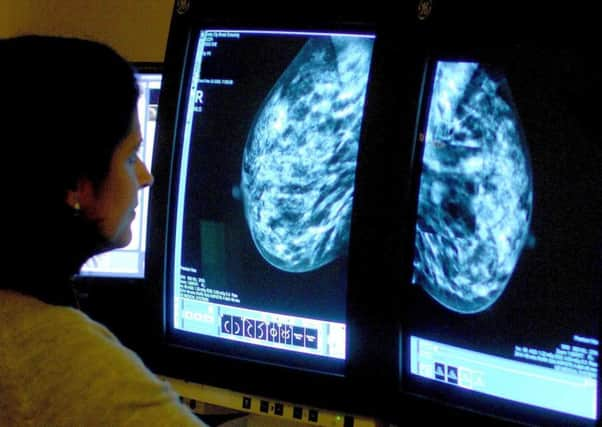Cancer sufferers clogging A&E due to lack of care support


Macmillan Cancer Support has claimed almost half of patients only have friends and family to rely on for practical help and are missing out on Government-funded social care.
Many of the patients who were surveyed admitted that they had endured guilt and depression as they are reliant on loved ones while also having to contend with their battle against the disease.
Advertisement
Hide AdAdvertisement
Hide AdMeanwhile, a separate report published today by the Longevity Centre-UK (ILC-UK) think tank has revealed that cancer deaths among working-age people are costing the UK economy as much as £585m a year.
The research by Macmillan Cancer Support revealed patients relied on family and friends for help with tasks such as washing, dressing and preparing food after it commissioned in-depth research among 255 people with terminal cancer or their carers.
Almost half of patients had only friends and family for support, despite 84 per cent of terminal cancer patients having serious enough needs to qualify for social care.
Macmillan Cancer Support’s chief executive, Lynda Thomas, said: “The emotional impact this dysfunctional approach to end-of-life care has on people with terminal cancer is particularly inexcusable. It is simply appalling that people with cancer at the end of life are being made to feel guilty at what is already a very difficult time. Equally, it is just not right for dying people to spend precious time in A&E because support is not there for them at home.
Advertisement
Hide AdAdvertisement
Hide Ad“End-of-life care is now at a crossroads - we know that too many people are not accessing badly needed social support at home, and that planning and co-ordination of care is not always what it should be.”
The research published today revealed 70 per cent of those with terminal cancer who felt they did not have enough support at home had gone to hospital in an unplanned or emergency visit. Macmillan claimed this equates to 28 per cent of all those with terminal cancer. Of those surveyed, 86 per cent admitted they had feelings of depression and sadness, 73 per cent felt hopeless on occasion and almost half had felt guilty.
Senior officials at Macmillan are now calling on the Government to fund the recommendations from an independent review into choice at the end of life, published in February. The report outlined the need for extra funding plus 24/7 care for patients being looked after outside of hospital.
The study by Longevity Centre-UK (ILC-UK) revealed more than 50,000 people of working age lose their lives to the disease every year and they could have contributed £585m in 2014. The report said the 1.8m people living with cancer and those who have survived it contribute about £6.9bn to the UK economy each year through being employed.
Advertisement
Hide AdAdvertisement
Hide AdOne in four people dies from cancer, accounting for more than 160,000 deaths annually. The number of people diagnosed with the disease is expected to rise from 330,000 per year to 430,000 by 2030.
The Department of Health maintained that survival rates are at a “record high”, but admitted more needs to be done.
A spokeswoman added: “Beating cancer is our ambition, but in the meantime we want to transform our survival rates and set a new standard for compassion in the way we treat those facing it.”